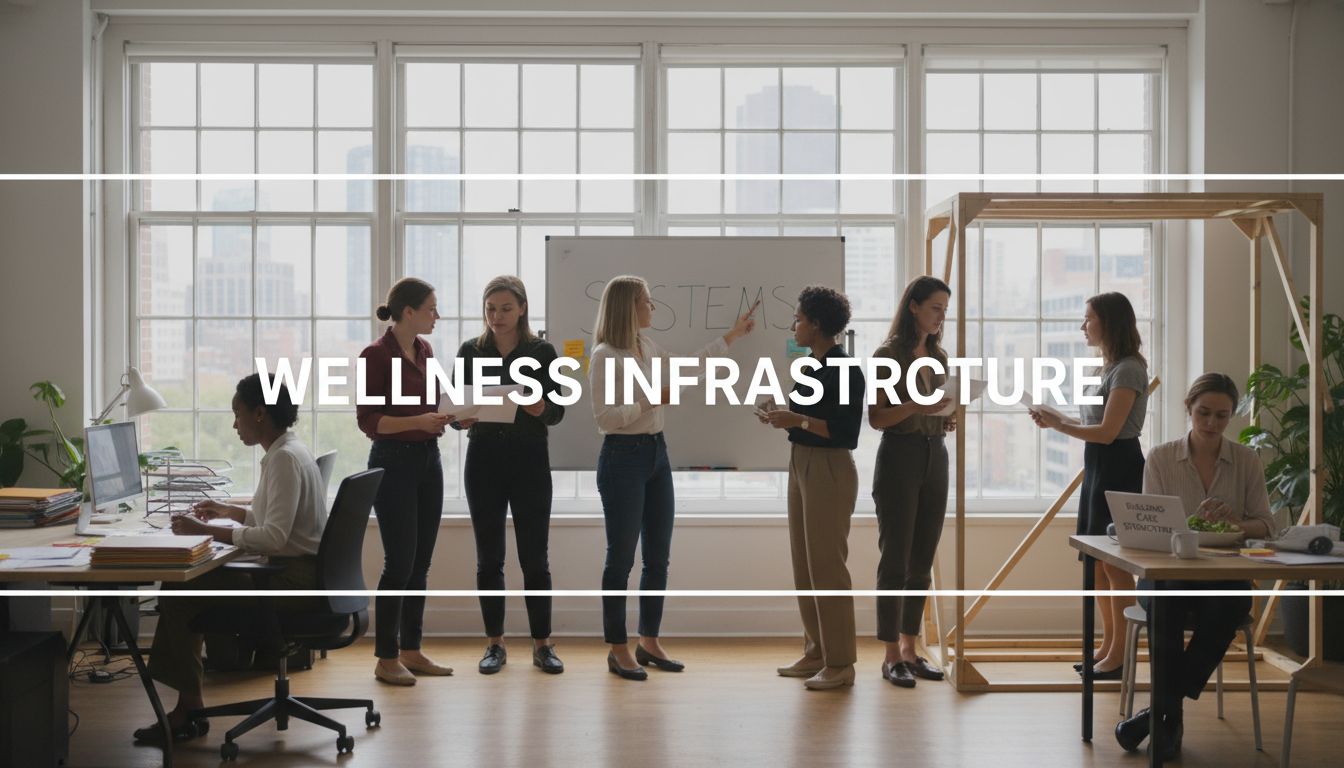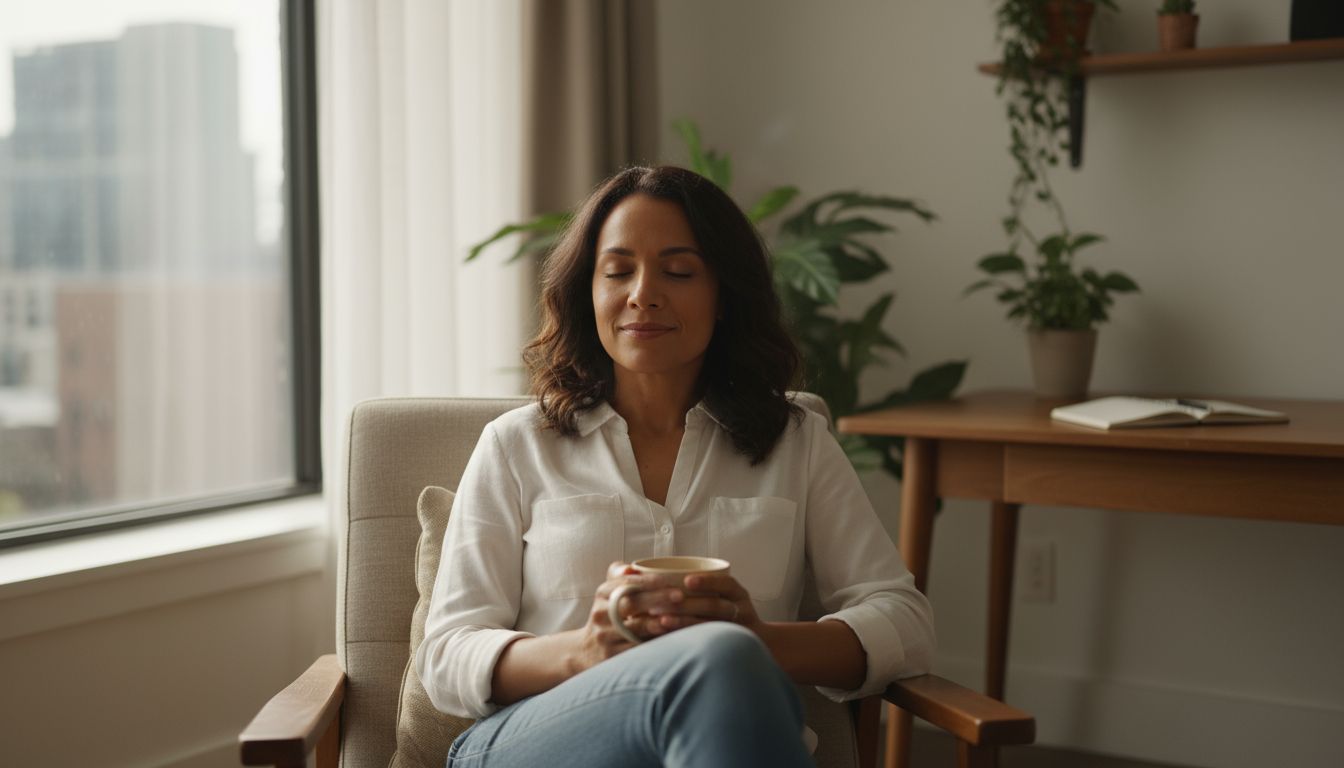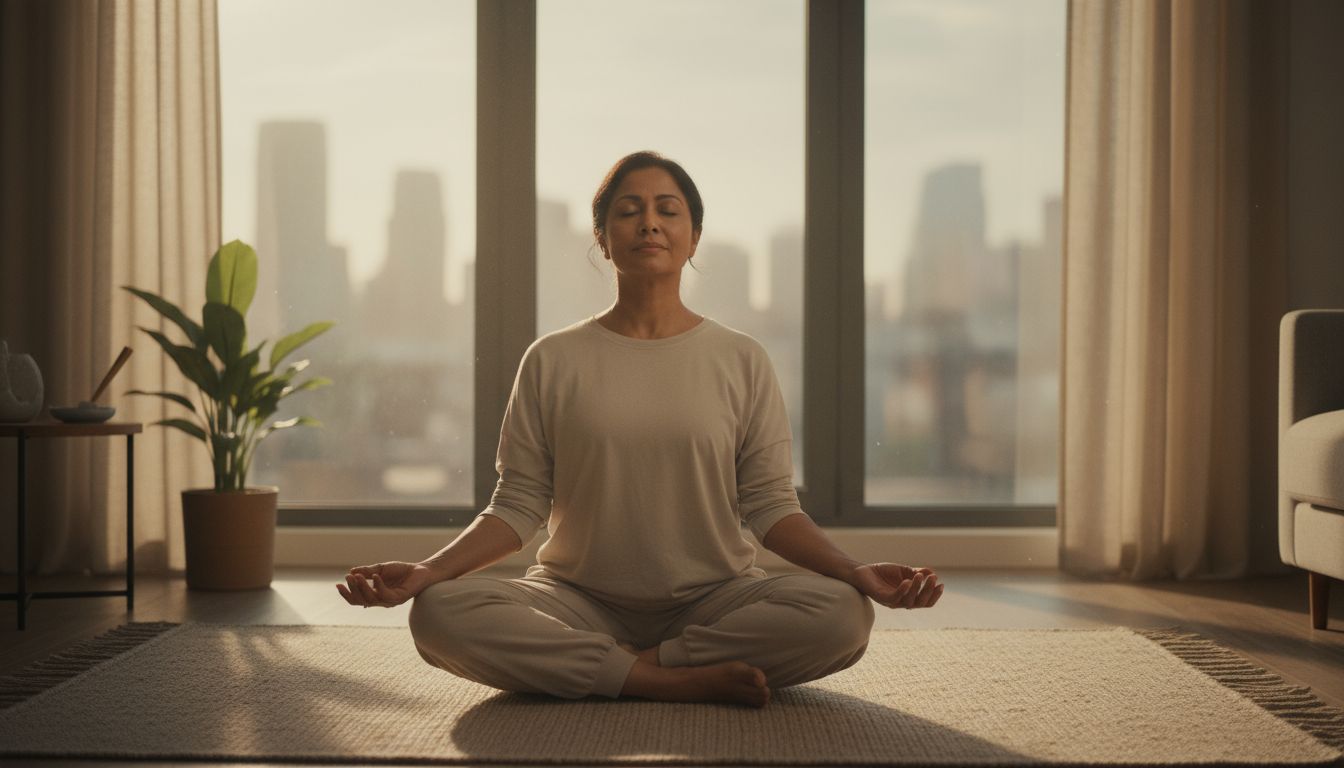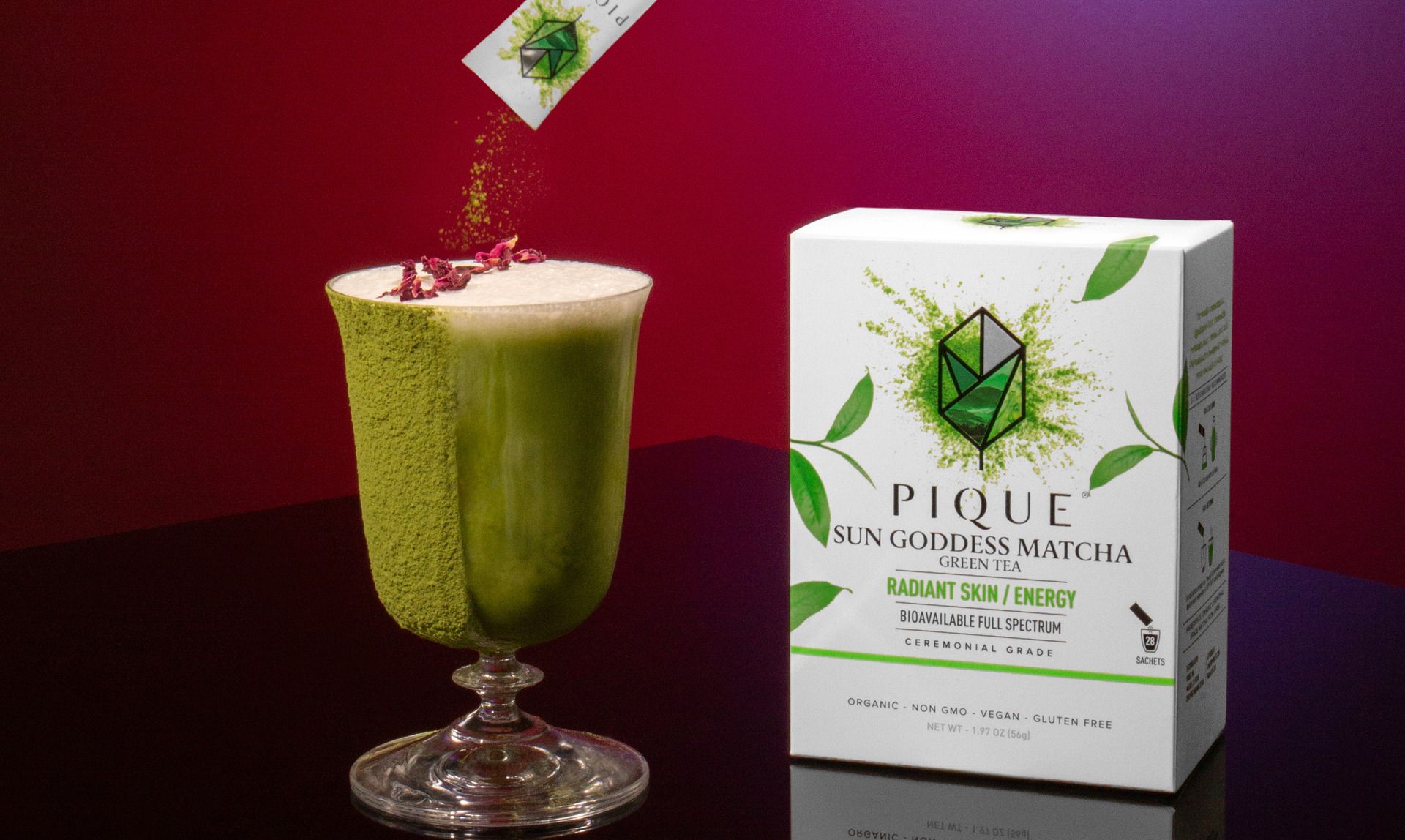- LIVE RICH RETIRE RICH
- Posts
- The Science of Stillness and Success
The Science of Stillness and Success

Stay Calm, Energized & Radiant This Season
The holiday rush is here—don’t just survive it, glow through it. Start every day with Pique’s Sun Goddess Matcha, the ultimate ritual for calm focus, sustained energy, and radiant skin. Unlike coffee, which spikes and crashes your energy, this matcha keeps you steady, alert, and glowing from within. Crafted by Japanese tea masters in Kagoshima, it’s ceremonial-grade, organic, and shaded longer for higher L-theanine and chlorophyll—meaning more calm, more clarity, and a daily dose of antioxidants that support skin, detox, and immunity.
This isn’t just a drink—it’s your secret to thriving through the season. And now’s the perfect time to stock up or gift it. For a limited time, get up to 20% off for life + free gifts.
✨ Elevate your ritual. Energize your glow.

I used to think wellness was a luxury.
The kind reserved for people with time and soft lighting.
For years, I treated wellness as something I’d get to once I had “made it.” Once the bills were paid, the team was trained, the kids were asleep, and the chaos quieted.
Then one day, the chaos didn’t quiet. I did.
Not dramatically. There were no hospital visits, no cinematic breakdowns. Just the quiet kind of burnout that hides in high achievers: when your calendar looks like success, but your soul is waving a white flag. When you wake up to a day you built, yet you no longer recognize yourself inside it.
That’s when I realized something I now teach in every Financial Freedom cohort:
Wellness isn’t self-care. It’s infrastructure.

The Myth of Self-Care and the Cult of Doing
For decades, the cultural narrative around success, especially for women, has been built around optimization.
We learned to treat our bodies like projects and our minds like machines. To do one more rep, one more email, one more sacrifice in service of the hustle.
And yet, the research keeps confirming what our bodies already know: the cost of chronic overextension is steep.
The American Psychological Association reports that more than 77 percent of professionals regularly experience physical symptoms caused by stress. McKinsey & LeanIn.org’s 2024 Women in the Workplace Report found that burnout among women leaders is at an all-time high.
But here’s the nuance. Burnout isn’t caused by doing too much. It’s caused by carrying it all alone.
That’s why self-care —whether it’s bubble baths, affirmations, or digital detoxes —while lovely, isn’t enough. Those are temporary relief valves in a fundamentally unsustainable system.
What we need is structure, systems, and boundaries. The kind of invisible scaffolding that lets you stand tall even when the winds of life are relentless.
That’s what I call Wellness Infrastructure.
The Four Pillars of Sustainable Success
After coaching hundreds of professionals — including executives, founders, physicians, and parents — I’ve noticed a pattern. The people who thrive long-term all have balance in four specific areas. These aren’t soft skills. They are measurable, practical, and deeply tied to wealth creation and retention.
Let’s explore each one.

1. Financial Wellness ≠ Your Bank Balance
Financial wellness is not a number. It’s a nervous system state.
It’s sleeping through the night without money nightmares.
It’s opening your bills without your heart racing.
It’s knowing your systems run while you rest.
I’ve watched clients go from financial chaos to calm, not because they suddenly earned more, but because they designed systems to manage what they already had.
In one of our recent quarterly cohorts, professionals found they could save $300 to $800 per month simply by organizing their finances and automating decisions. That’s not budgeting. That’s emotional regulation through financial clarity.
As Morgan Housel, author of The Psychology of Money, writes, “The highest form of wealth is the ability to wake up and say, ‘I can do whatever I want today.’”
Financial wellness is freedom. Not freedom from responsibility, but freedom from reactivity. It’s not just money in the bank. It’s peace in your bones.

2. Mental Wellness ≠ Positive Thinking
Let’s be honest. Toxic positivity has hijacked wellness.
We’ve been told that mindset is everything, but without emotional processing, it's denial dressed as optimism.
True mental wellness isn’t about thinking happy thoughts. It’s about having space between trigger and response. It’s about processing your emotions before they process you.
It’s the 10 quiet minutes in the morning that save you 10 frantic hours later.
In neuroscience, this is called emotional regulation, the ability of the prefrontal cortex to calm the amygdala’s fear response. In real life, it’s the pause between your colleague’s snide remark and your reaction, between your child’s meltdown and your meltdown about their meltdown.
Mental wellness gives you margin. And margin gives you mastery.
Because when you’re centered, decisions become cleaner. Conversations become kinder. Money flows where clarity goes.

3. Physical Wellness ≠ Perfect Abs
Let’s stop glorifying exhaustion.
Being tired is not a badge of honor.
Physical wellness is not the aesthetic of health. It’s the energy of vitality.
It’s having enough stamina to create, lead, love, and play, not just survive the day. It’s shoulders that don’t carry yesterday’s tension, and digestion that isn’t in a constant state of fight or flight.
In my corporate career, I used to schedule everything except myself. Meetings had blocks. Spreadsheets had deadlines. But my body was a background process.
Until one day it crashed. And there’s no reboot for burnout.
Now, my movement practice isn’t punishment. It’s a prayer.
It’s not about how I look. It’s about how I live.
The women I coach often resist rest because it feels unproductive. But as I remind them, rest is ROI. Your nervous system is the first investor in your success. Treat it that way.

4. Environmental Wellness ≠ Pinterest-Perfect
You don’t need a home that looks like a magazine. You need a space that feels like an exhale.
Environmental wellness is the silent support system behind every thriving woman.
It’s one clear surface that clears your mind.
It’s a plant that reminds you that growth takes time.
It’s the playlist that makes your kitchen feel like a sanctuary instead of a battlefield.
When your space breathes, you can too.
This is not about aesthetic perfection. It’s about energetic alignment. Your environment should be a reflection of who you are becoming, not a storage unit for who you used to be.
You Can’t Outwork Dysregulation
There’s a truth that I wish every ambitious professional would write on a Post-it above their desk.
You can’t outwork a dysregulated nervous system.
You can’t out-earn financial anxiety.
You can’t out-achieve emptiness.
But you can build infrastructure that holds you when you can’t hold yourself.
That’s the quiet revolution of modern leadership: not building bigger empires, but building stronger foundations. Not more doing, but more being.
Because the real metric of success isn’t productivity. It’s peace.
The Ripple Effect of Integrated Wellness
When clients begin to integrate all four pillars, they don’t just perform better; they thrive. They become unrecognizable.
Their teams notice before they do. They lead with more patience. They negotiate without fear. They create space for innovation because their minds aren’t cluttered with noise.
One client, a senior executive in healthcare, told me after six weeks of practicing this framework:
“I used to wake up anxious about what I hadn’t done. Now I wake up curious about what I can create.”
That’s what happens when you shift from control to coherence.
Wellness isn’t a luxury. It’s leverage.
The Data Behind the Calm
The link between wellness and wealth is not spiritual fluff. It’s neuroscience and behavioral economics.
Studies from Harvard Business Review and Stanford’s Graduate School of Business reveal that executives who prioritize mental and physical wellness outperform peers by 23 percent in productivity and 29 percent in long-term profitability.
Meanwhile, the World Health Organization reports that for every one dollar invested in employee wellness, companies see a four-dollar return in improved health and performance outcomes.
So if you’ve ever felt guilty for slowing down, remember: the numbers are on your side.

Integration Over Perfection
Perfection is brittle. Integration is unbreakable.
Perfection says, “I’ll rest when it’s all done.”
Integration says, “I’ll rest because it’s how I get it done.”
Perfection is balance as performance, the illusion of having it all together.
Integration is balance as embodiment, the practice of coming home to yourself again and again.
This is the heart of what I teach in my Wellness Wealth System, a living framework that combines financial strategy with nervous system literacy so you can live rich now and retire rich later.
Because legacy isn’t just the money you leave. It’s the energy you live.
A Gentle Invitation
Take a deep breath. Now ask yourself:
“If I strengthened just one type of wellness this week, which would transform my life the most?”
💚 Financial
🧠 Mental
💪 Physical
🏡 Environmental
Write it down. Name it. Nurture it.
Because one shift, one 10-minute morning pause, one system automated, or one drawer cleared can change the trajectory of your entire year.
The Quiet Revolution of Enough
In a world obsessed with more — more money, more milestones, more metrics — the radical act is to say enough.
Enough depletion. Enough comparison. Enough running on fumes.
We were never meant to be machines.
We were meant to be magnificent.
So if you take nothing else from this week’s Live Rich, Retire Rich edition, let it be this:
The goal was never to do more.
It was always to be more.
To build a life that feels as good on the inside as it looks on the outside.
To build wealth that you can actually enjoy living in.
Because when you live well, you lead well.
And when women lead well, the world heals.
With calm and clarity,
Najma Zanelli
Book A Private Call
Explore Offerings
Founder, NAZ Global Consultancy
Follow me on IG: @najma_zanelli
Email: [email protected]


Reply